Al-Haq, a leading Palestinian human rights organization based in the West Bank, is not new to adversity. But since the group was sanctioned by the Trump administration in September, its world has shrunk.
Today, staff work without pay because their banks closed their accounts. US-based funders have pulled away. YouTube has pulled hundreds of the group’s videos documenting Israeli forces’ human rights abuses against Palestinians. Perhaps most upsetting, US-based groups that had long collaborated have gone quiet, fearful that communications with Al-Haq may draw the attention of an administration that has made clear they are a target.
“I feel a deep, deep pain in my heart,” said Shawan Jabarin, Al-Haq’s director, of the silence from US-based organizations in the human rights and social justice sector. “Most of them – if not all – they stopped working with us or engaging with us formally and openly.”
Speaking to the Guardian, Jabarin called on US-based rights groups to take a more defiant stance against the Trump administration. “Standing on the side of human rights and justice doesn’t mean that you have to respect draconian orders or laws,” he said. “You have to fight back with all means.”
The Trump administration announced sanctions against Al-Haq over the group’s support for the international criminal court’s investigation of Israeli crimes in Palestine. The sanctions marked an early strike in a broader campaign against civil society, a campaign disproportionately focussed on groups championing Palestinian rights that also threatens to sweep up climate, democracy and racial justice groups.
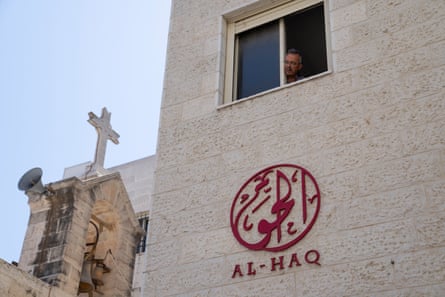
In a statement announcing the sanctions, the US secretary of state, Marco Rubio, said that “the United States will continue to respond with significant and tangible consequences to protect our troops, our sovereignty, and our allies from the ICC’s disregard for sovereignty, and to punish entities that are complicit in its overreach”.
Israel and the US – which are not members of the ICC – have long attacked the court and maintain that it has no jurisdiction over them. But the Trump administration’s crackdown on pro-Palestinian groups is hardly limited to their connection to the ICC.
Last month, the administration instructed US attorneys across the country to investigate Open Society Foundations (OSF), the philanthropic network founded by liberal billionaire George Soros, over unfounded allegations that it has sponsored groups promoting political unrest and suggesting charges as severe as material support for “terrorism”. In a presidential memorandum signed in September, Trump also instructed law enforcement to “disband and uproot” organizations and networks that the administration says promote “domestic terrorism” and “organized political violence”.
Groups and individuals critical of Israel, both in the US and abroad, are under particular scrutiny. The Trump administration has also detained foreign nationals for pro-Palestinian speech and sanctioned the UN special rapporteur for the occupied territories and senior international criminal court officials.
Palestine-based groups like Al-Haq, which don’t enjoy the constitutional protections their US-based peers do, are among the easiest targets. But as a Palestinian, Jabarin said, he knows something about standing in defiance of a repressive regime.
“Maybe it’s our nature and our essence as Palestinians, because we are fighting for every aspect of our life,” he said. “Our culture is not to give up, and to continue fighting for justice. Maybe other societies haven’t reached this point yet.”
But the group’s continued advocacy has come at a steep price.
Since the sanctions were announced, Al-Haq and its roughly 45 staffers have lost access to their bank accounts as three banks the group works with dissolved their accounts in October. (Even banks overseas not explicitly affected by sanctions are often jittery about working with people and groups sanctioned by the US.) The group is currently unable to receive donations or pay its employees, and two American funders have stopped their donations. US staff had to resign. Other staff have continued to work for free, Jabarin said, aided by former colleagues and supporters abroad. In addition to YouTube, Meta and Mailchimp have restricted or pulled their services. (The three companies did not immediately respond to request for comment.)
Al-Haq has lost allies, too.
Among the organizations now fearing Trump’s crackdown are scores of US-based non-profits. While more draconian efforts to silence civil society with so-called “non-profit killer” legislation have so far failed, and experts say Trump’s efforts against Soros will struggle to stand up in court, such groups have for months been on high alert, fearing attacks on their tax-exempt status and the prospect of costly litigation.
US-based human rights and Palestinian advocacy groups that have collaborated with Al-Haq in the past are now afraid to. (Jabarin declined to name them.) The sanctions the US imposed on Palestinian rights groups – one of the only measures available to the administration in the absence of congressional action – make working with them a liability for their US peers. US-based organizations that worked with Al-Haq in the past declined to speak on the record about their relationship with the group when contacted by the Guardian, but some noted that maintaining professional communications with a sanctioned organization exposed them to significant risk.
Coordinated advocacy with sanctioned organizations could expose US groups to civil and criminal enforcement, some noted, with possible consequences ranging from loss of fiscal benefits to jail time. Some US non-profits are so risk-averse they avoided public criticism of the sanctions altogether.
Leena Barakat, a co-founder of the Block and Build Funder Coalition, a network of funders she described as “committed to resisting authoritarianism”, said that US-based groups and donors who support the work of sanctioned Palestinian organizations find themselves in a “devastating” position.
“We should be fighting back and I think right now there’s absolutely the desire and the will to do it. The question on the table is what is the best and the most strategic fight,” she said. “We’re thinking about that every day.”
Al-Haq has documented Israel’s human rights abuses in Palestine for half a century. Alongside other organizations the US has also sanctioned – Al Mezan Center for Human Rights, the Palestinian Centre for Human Rights, and Addameer, which is focused on the rights of Palestinian prisoners and detainees – the group played a key role in demanding and later supporting the ICC’s investigation.
In 2021, Israel designated Al-Haq and five other Palestinian rights groups as “terrorist organizations”, alleging links between the groups and the Popular Front for the Liberation of Palestine, a leftwing political party the US and other countries consider a terrorist organization. Reporting at the time revealed that Israel had no concrete evidence to back the designations, and the CIA was unable to corroborate Israel’s claims about the groups. Months later, Israeli soldiers raided Al-Haq’s office.
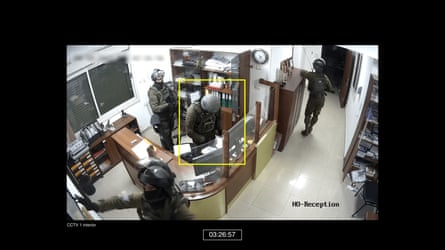
The designations and raids were widely condemned by international rights groups and the Biden administration distanced itself from them. But Jabarin always feared the possibility the US might at some point follow Israel’s lead and seek to punish the group.
Jabarin dismissed the latest US sanctions as a “political attack” and pledged that Al-Haq would continue its documentation of human rights violations and its work with the ICC.
“They want to silence any voice calling for accountability, calling for ending the culture of impunity, anyone speaking about the rights of Palestinians and justice for Palestine,” he said. “We will continue doing our work, we will continue fighting for justice and for human rights and we will continue going after the criminals and holding the criminals accountable.” Al-Haq’s submissions to the court, he added, are “legal” and “peaceful”.
Jabarin says he understands the constraints imposed on his US colleagues but is frustrated by what he views as a reluctance to more openly defy Trump beyond issuing statements. What Trump wants is for organizations to comply without putting up a fight, and how global civil society responds to this moment will have lasting implications, Jabarin added.
“Palestine is the test” for all people of conscience, he said.
“The US administration, they are supporting the rule of the jungle, not the rule of law,” he said. “And what’s going on, globally speaking, is a war between the rule of the jungle and the rule of law.”

 German (DE)
German (DE)  English (US)
English (US)  Spanish (ES)
Spanish (ES)  French (FR)
French (FR)  Hindi (IN)
Hindi (IN)  Italian (IT)
Italian (IT)  Russian (RU)
Russian (RU)  3 weeks ago
3 weeks ago




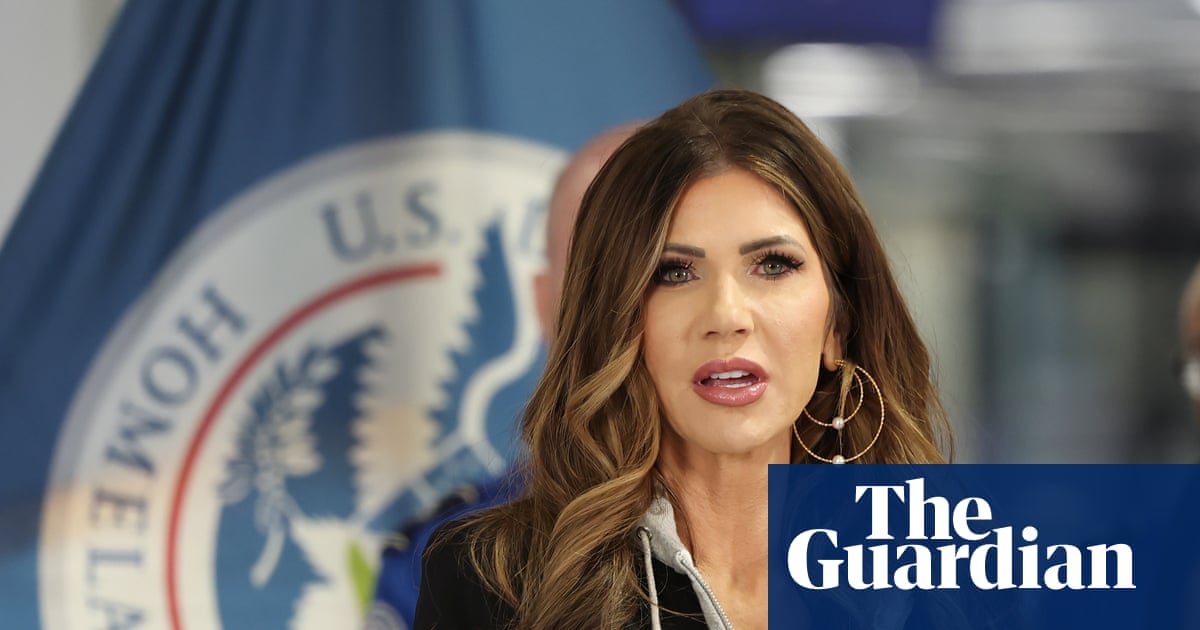






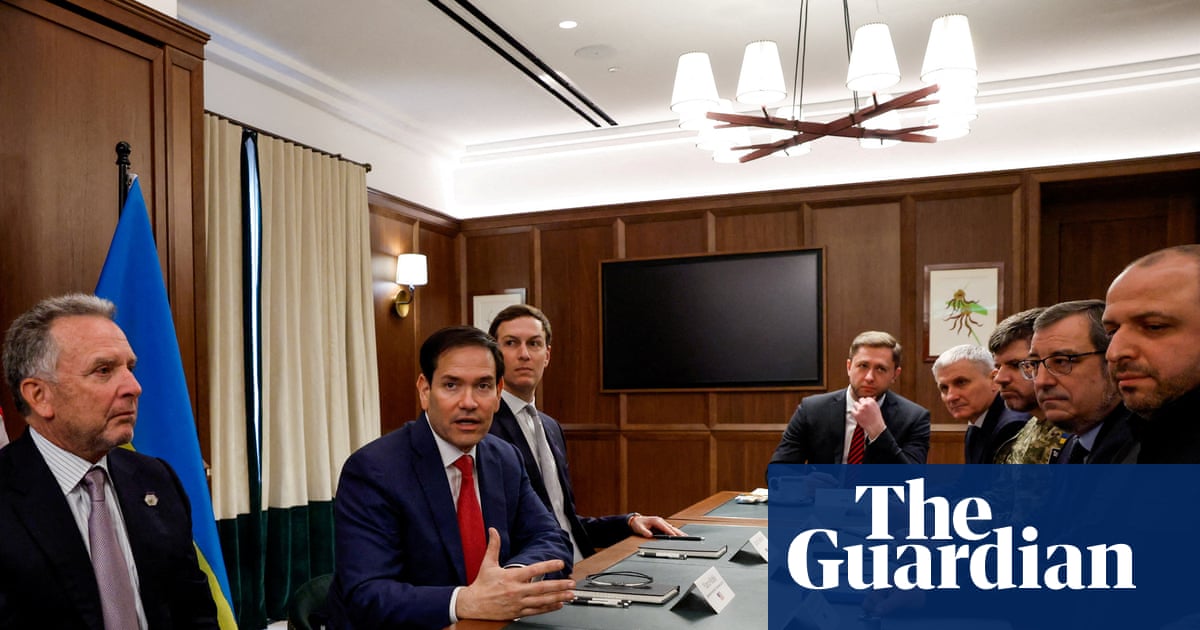








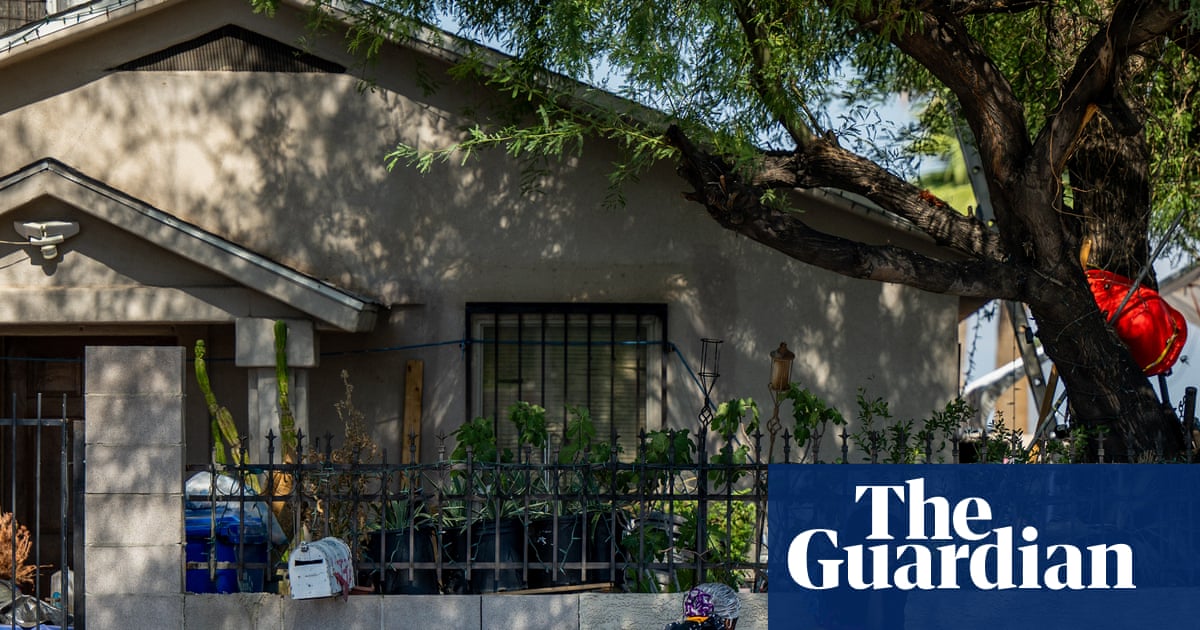



Comments